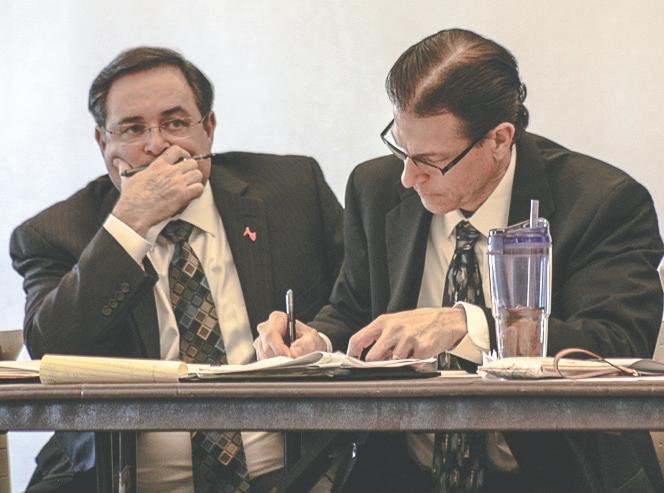
3 minute read
Transportation assistance
KATERINA
CHRYSSAFIS Roundup Reporter @KatChryssafis
Advertisement
Proposals for transportation assistance programs are still a long way from implementation, but there are options available for Pierce College commuters such as the Rideshare Incentive Program for faculty and reduced bus passes for students.
The Pierce College Rideshare Program is available for all faculty members on campus. According to Employee Transportation Coordinator Christine Valada, the program was brought forth to encourage people to carpool or take public transportation to and from work.
“The Rideshare Program is part of our obligations under the South Coast Management District Rule 2202, which says that organizations with more than 150 employees are required to reduce their carbon footprint,” Valada said.
Although the Ride Share Program is exclusively for employees, students can also save money by using public transportation to get to school.
Metro offers monthly reducedfee bus passes for college students at $43 a month. To qualify, students must provide proof of enrollment in an accredited institution in Los Angeles County, and they must also be enrolled in a minimum of 12 semester units.
“We used to sell the passes here on campus for several years. The rates have raised since then, but $43 a month is not bad at all,” said Valada.
Valada believes that many people are unaware of the benefits of public transportation.
“I try to do a couple of presentations a year on campus,” Valada said. “Now that my office is closer, students are welcome to come by and ask any questions that they may have.”
Director of Financial Aid Anafe Robinson said students, especially those of low income, can benefit greatly from public transportation.
“Over 60 percent of our students are receiving a fee waiver,” says Anafe. “That usually means that they are low income. Having a discounted price for buses and metro trains are extremely beneficial towards our students.”
Pierce College American Sign Language major, Edward Willrader, believes that there are various reasons why many students do not take advantage of public transportation.
“I grew up using public transportation. The only issue is not everyone wants to do it,” Willrader said. “You really don’t need a car if you work the public transportation correctly.” to Constance Moffatt, curriculum chair.
Those classes include courses in the child development, dance and kinesiology fields.
Among the new courses are volleyball skills and yoga sections, as well as a kinesiology major course. Pierce will also offer an Olympic weightlifting class.
The senate also discussed updates to the Horticulture Viability Study, which will determine the efficacy of the horticulture program.
Kathy Oborn, president of the academic senate, said the study has been ongoing for several years and may result in increased funding, with the possibility of new faculty student had a seizure while playing basketball in the North Gym. Paramedics were called. became ill in front of the old Pierce Library and was taken to a hospital by paramedics.
[From AUDIT, pg. 1]
Administrators have alleged that the foundation board spent funds on projects for which they were not originally intended, and of not meeting the required fundraising minimums set forth in the foundation bylaws.
“The Foundation board voted to use money called ‘Legacy Funds’ for repairs to the Farm Center,” Robb said.
The $100,000 used for those repairs came from “a former Pierce president,” and was part of an account known as the President’s Beautification Fund, according to Robb.
-Rolf Schleicher Vice President, Administrative Services
hired for the program.
“When you write up a manuscript, it goes through changes and the galleys come back to departments, they make the corrections, and these must be approved,” Moffatt said.
“If the galleys are far along that means we can’t offer the courses yet.”
The senate also announced that both history and economics have been added to the transfer model curriculum.
The TMC refers to the minimum 18 units in an area of emphasis or major that students need to transfer.
These transfer options will be available in the fall if approved by the senate.
“The foundation board had determined that the District didn’t want to pay for it, even though it sounds like the District should have paid for it, and the foundation didn’t know what to do. So they voted to use that money to repair this land,” Robb said. “The president contends to this day that that money was not theirs to use for that purpose. The foundation claims that it was.”
Burke confirmed that the administration decided, in part, to pursue the audit as a step toward the recovery of “an undetermined amount” of funds, which were allegedly misspent by the foundation. Burke said her administration has actively sought recompense for those funds.
“We’ve been trying since I took office,” Burke said.
Robb said she would like to see the foundation and the administration focus on reconciliation.
“I don’t think we should be at war with the President,” Robb said. “I think we should work with the president as much as we can.”







